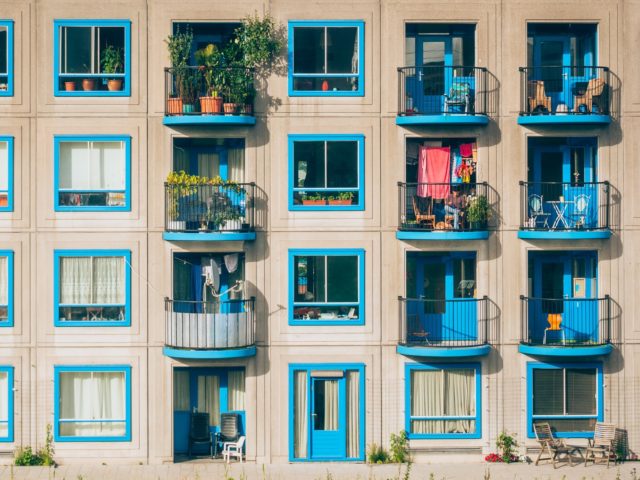President Donald Trump’s campaign to protect the suburbs is on target, says Jessica Trounstine, a political science professor at the University of California, Merced.
“The Trump campaign isn’t wrong to think that white suburban voters—the obvious target of the McCloskeys’ speech—would oppose apartment construction in their neighborhoods,” she admits in The Atlantic magazine on Wednesday.
“In a nationally representative survey of metropolitan areas that I conducted last year, a substantial majority of homeowners revealed a strong preference for single-family development and opposition to apartments,” she wrote.
“They also overwhelmingly agreed that residents of a community should get a vote on what is built there,” Trounstine wrote.
Trounstine does accuse President Donald Trump of stoking fears about the fact that Democrats and the left see forced diversity of neighbors as necessary to end discrimination against people because of their skin color or income. And then there’s the abhorrence of individual rights.
“By linking his opposition to fair-housing laws with neighborhood protection, Trump is invoking the segregationist view—as the historian Kevin M. Kruse has characterized it—that homeowners have the ‘right’ to select their neighbors … the ‘right’ to do as they [please] with their private property … and the ‘right’ to remain free from … dangerous encroachments by the federal government,” Trounstine wrote.
Trounstine was not impressed with the Democrat suburbanites who were featured during last month’s 2020 RNC convention. Patricia and Mark McCloskey, who gained national attention when they brandished their firearms after Black Live Matter agitators where threatening their private property.
The professor doesn’t think that Trump’s promise to protect the suburbs will earn him votes because residents are looking to local politicians to keep their turf to themselves.
Suburbanites in both parties might not need him, Tournstine wrote, because they use local political pressure.
And Trounstine was in favor of Barack Obama’s tweaking of the Fair Housing Act in 2015 with regulations that forced neighborhoods to allegedly stop discrimination by incorporating low-income housing.
Trump rescinded the Obama rule this year.
Trounstine, who is white, continues her commentary with claims that it is white privilege, not the blessings of private property, which drives suburbanites to want to preserve their lifestyle. However, these suburbs are increasingly diverse, as Trump has spoken about publicly.
Trounstine suggested in her op-ed it is somehow racist to want a desirable neighborhood to live in and to work hard to achieve that goal.
“Solidified in the middle of the 20th century, this rights-based mindset offers a superficially color-blind rationale for keeping communities exclusive,” she said. “It allows residents to view their ability to settle in such places as the product of their own hard work rather than the outcome of deliberate public policy.”
Then, citing her own data again, Trounstine claims the protection of suburban neighborhood life is popular in both parties, if you are white.
“My survey data revealed no significant difference between white Republican and white Democratic homeowners in their opposition to high-density housing,” she wrote. “I also found overwhelming agreement that apartment complexes would increase crime rates, decrease school quality, lower property values, and degrade the desirability of a neighborhood.”
“Plenty of white Democrats continue to work vehemently to block low-income-housing development in their neighborhoods,” Trounstine wrote.
She said while white Democrats will say they reject Trump’s idea of suburban havens, “where white Democrats oppose such development is when it arrives in their own backyards.”
But Democrats might be willing to give up those backyards for the “common good,” she wrote.
“For the Democratic and swing voters whom Trump hopes to win over, other concerns—such as the pandemic, economic decline, and, perhaps ironically, racial and social justice—will probably matter far more than the potential loss of their suburban property rights.”
Follow Penny Starr on Twitter

COMMENTS
Please let us know if you're having issues with commenting.